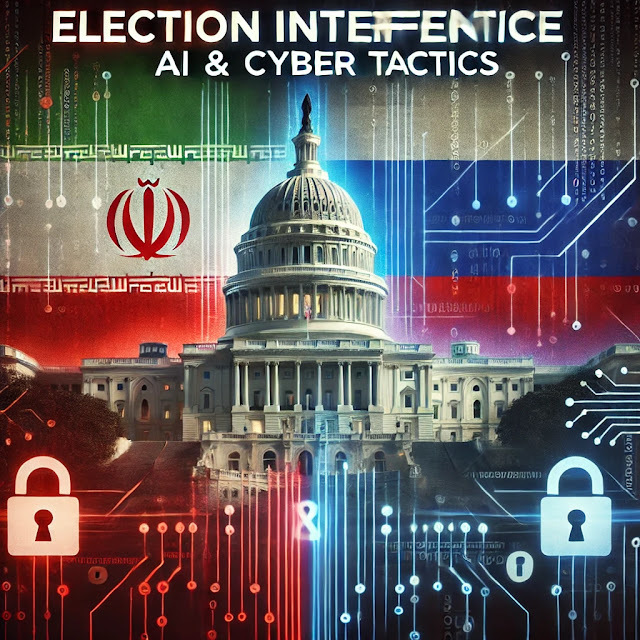The U.S. Treasury Department's Office of Foreign Assets Control (OFAC) has imposed sanctions on two entities from Iran and Russia for orchestrating cyber and AI-driven interference in the November 2024 U.S. presidential election.
These entities—a unit linked to Iran's Islamic Revolutionary Guard Corps (IRGC) and a Moscow-based affiliate of Russia's Main Intelligence Directorate (GRU)—leveraged disinformation campaigns aimed at disrupting the electoral process and deepening societal divisions within the U.S.
Iran’s Role in Election Interference
In August 2024, the Office of the Director of National Intelligence (ODNI), FBI, and CISA highlighted Iran's efforts to undermine U.S. democracy through cyberattacks and disinformation operations. Key findings included:
- Cyber Operations: Iranian hackers attempted to access sensitive election-related data.
- Meta's Countermeasures: Meta blocked WhatsApp accounts tied to Iranian threat actors targeting individuals in Israel, Palestine, Iran, the U.K., and the U.S.. The operation was attributed to Charming Kitten, a hacking group linked to the IRGC.
In September 2024, three Iranian nationals were charged for targeting U.S. government personnel and stealing sensitive data as part of IRGC-directed operations.
U.S. Sanctions Iranian and Russian Disinformation Networks
The Treasury Department's latest sanctions target:
Cognitive Design Production Center (CDPC):
A subsidiary of Iran’s IRGC responsible for influence campaigns that sought to incite social and political discord in the lead-up to the 2024 elections.Center for Geopolitical Expertise (CGE):
A Moscow-based organization tied to Russia’s GRU, CGE specializes in cyber warfare, disinformation campaigns, and AI-generated deepfakes.
CGE, founded in late 2020 by Aleksandr Dugin, utilizes AI tools to produce synthetic content, disseminating it via fake news websites posing as legitimate sources. The GRU funded these activities, including maintaining a server for hosting AI tools and managing over 100 disinformation websites.
Russian Influence Operations
OFAC has revealed that CGE’s operations were led by Valery Mikhaylovich Korovin, a GRU officer responsible for:
- Coordinating financial support for disinformation campaigns.
- Using AI-generated deepfakes to deceive and influence voters.
- Running a network of proxy websites, fake personas, and front organizations to disguise Kremlin involvement.
Why This Matters
The use of generative AI and cyber tactics in election interference marks a new era of sophisticated threats to democratic processes. These sanctions highlight the U.S. government’s commitment to countering malign influence campaigns and safeguarding electoral integrity.
Stay updated with the latest cybersecurity news and in-depth analysis on emerging threats by following easy4hub.



